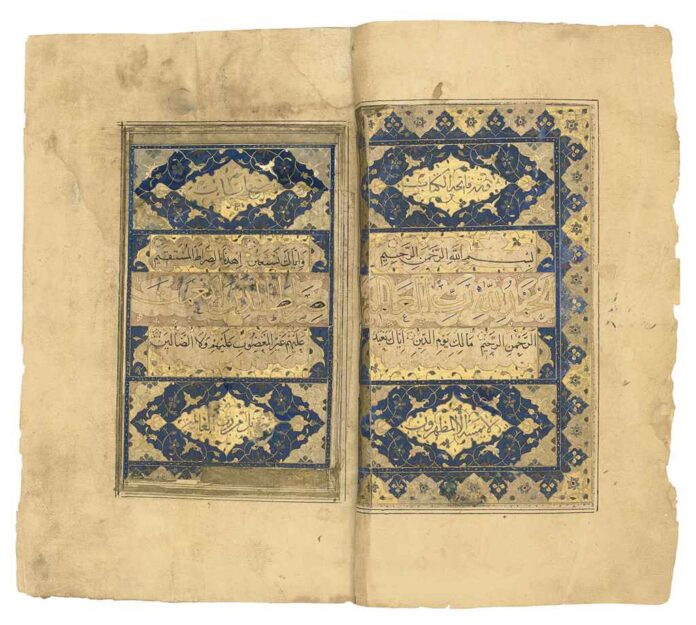The Khawarij are known by several names and nicknames. They came to be called the Khawarij [“the Seceders” or “the Rebels”] because of their rebellion [khuruj] against ‘Ali ibn Abi Talib (may Allah be well pleased with him).
They have been called the Hukmiyya, because of their refusal to accept the authority of the two arbitrators [hakamain], Abu Musa al-Ash`ari and `Amr ibn al-`As (may Allah be well pleased with them both), and because of their war cry: “The decision belongs to Allah alone [la hukma illa li’llah]; the two arbitrators have no power to decide!”
They have also been called the Haruriyya, because they set up camp in Harura’, which is a place [not far from Kufa].
Yet another name that has been given to them is “the Vendors” [Shurat], because of their assertion: “We have sold our own selves for the sake of Allah’s cause [shara`ina anfusana fi’llah],” or in other words: “We have traded them in exchange for Allah’s spiritual reward and His good pleasure.”
They are sometimes referred to as “the Defectors” [Mariqa], because of their defection [muruq] from the religion [din]. They were actually described by the Prophet himself (Allah bless him and give him peace) as people who would swerve away from the religion, just as the [hunter’s] arrow may swerve away from the animal target, and who would not come back to the fold. Such indeed are they, for they have swerved away from the religion and from Islam. They have separated themselves off from the religious community [millah], breaking loose from it and from the loyal congregation [jama’a]. They have gone astray from the level course of right guidance and from the true path [sabil].
They have withdrawn their allegiance from the ruling authority [sultan], and they have unsheathed the sword against the rightful leaders [a`imma], whose blood they consider it permissible to shed, and whose property they consider it lawful to confiscate. They have branded all who oppose them as unbelievers [kaffaru man khalafahum]. They dare to heap curses on the Companions [Ashab] of the Prophet (Allah bless him and give him peace) and on his Helpers [Ansar]. They wash their hands of them, haughtily dismiss them as guilty of unbelief [kufr] and terrible sins [`aza’im], and consider it right and proper to contradict them.
They do not believe in the torment of the tomb [`adhab al-qabr], nor in the Basin [Hawd], nor in the right of intercession [shafa`a]. They offer no one any prospect of deliverance from the Fire of Hell, and they profess the doctrine that if someone tells a single lie, or commits a sin of any kind, whether it be trivial or serious, and if he then dies without repentance, that person will be counted as an unbeliever [kafir], and will be condemned to remain in the Fire of Hell for all eternity.
They do not regard the congregational prayer [jama`a] as valid unless it is performed behind their own Imam, but they do regard it as valid to postpone the ritual prayer [salat] beyond its prescribed time, to begin the fast [sawm] before the sighting of the new moon [of the month of Ramadan], and to break the fast [fitr] in like manner [before the end of Ramadan has been established by the sighting of the new moon of Shawwal]. They also admit the validity of a marriage contracted without the participation of a marriage guardian [wali]. They accept as lawful [halal] the practice of temporary marriage [mut`a] and transactions of the type in which one dirham [silver coin] is exchanged immediately for two dirhams.
They do not regard it as valid to perform the ritual prayer [salat] while wearing leather slippers/socks [khifaf], nor do they accept the practice of wiping [mash] over these [instead of removing them in order to wash the bare feet].
They do not regard the Sultan as having any right to obedience, nor do they accept the claim of [the tribe of] Quraish to the Caliphate.
The areas in which the Khawarij are to be found in the most considerable numbers are: Mesopotamia, ‘Uman, Mawsil, Hadramawt, and the provincial districts inhabited mainly by the Arabs.
The names of the authors who have composed their textbooks for them are: `Abd ibn Zaid, Muhammad ibn Harb, Yahya ibn Kamil, and Sa`id ibn Harun.
The Fifteen Sects of al-Khawarij
copyright Baz Publications


